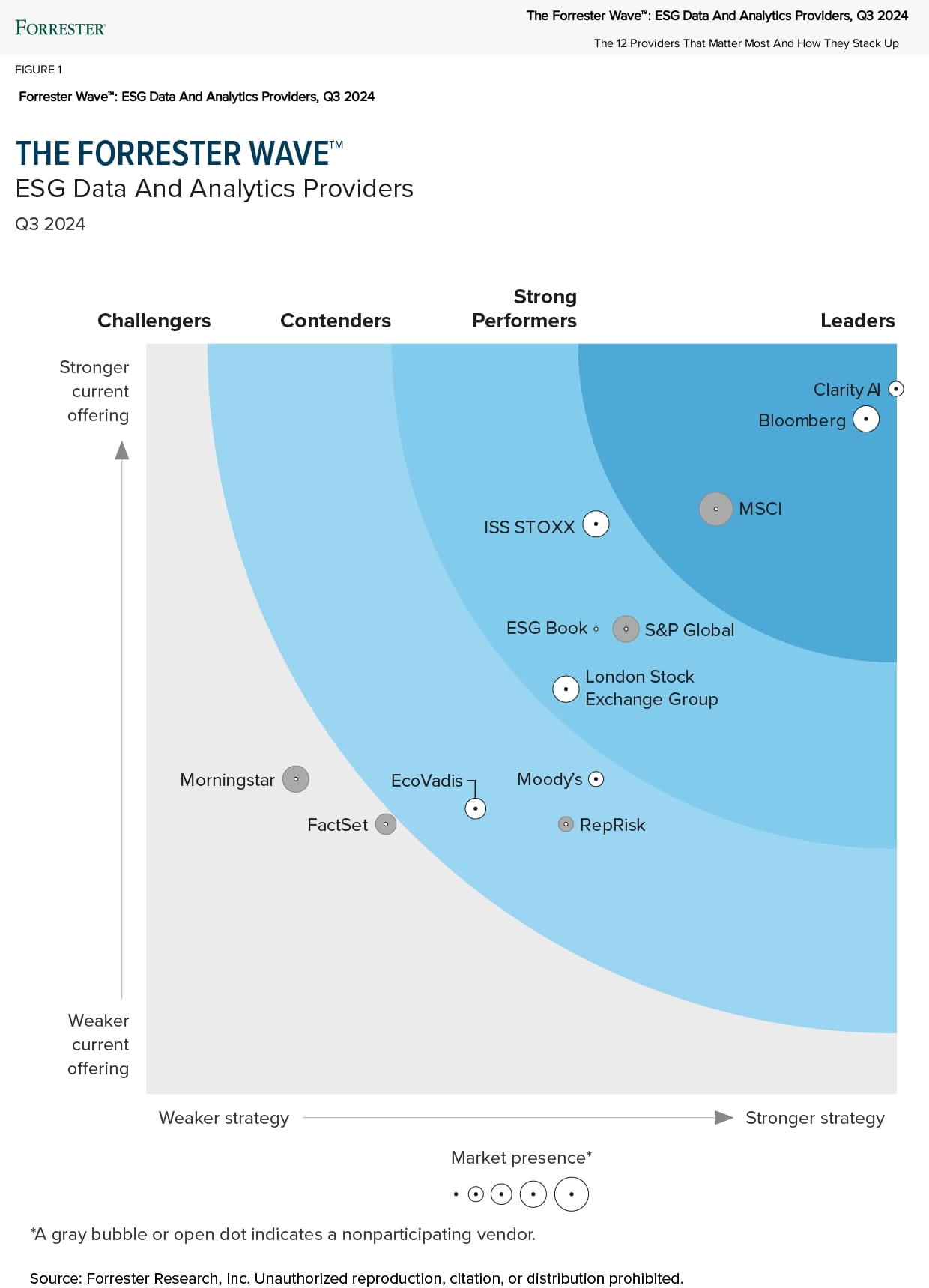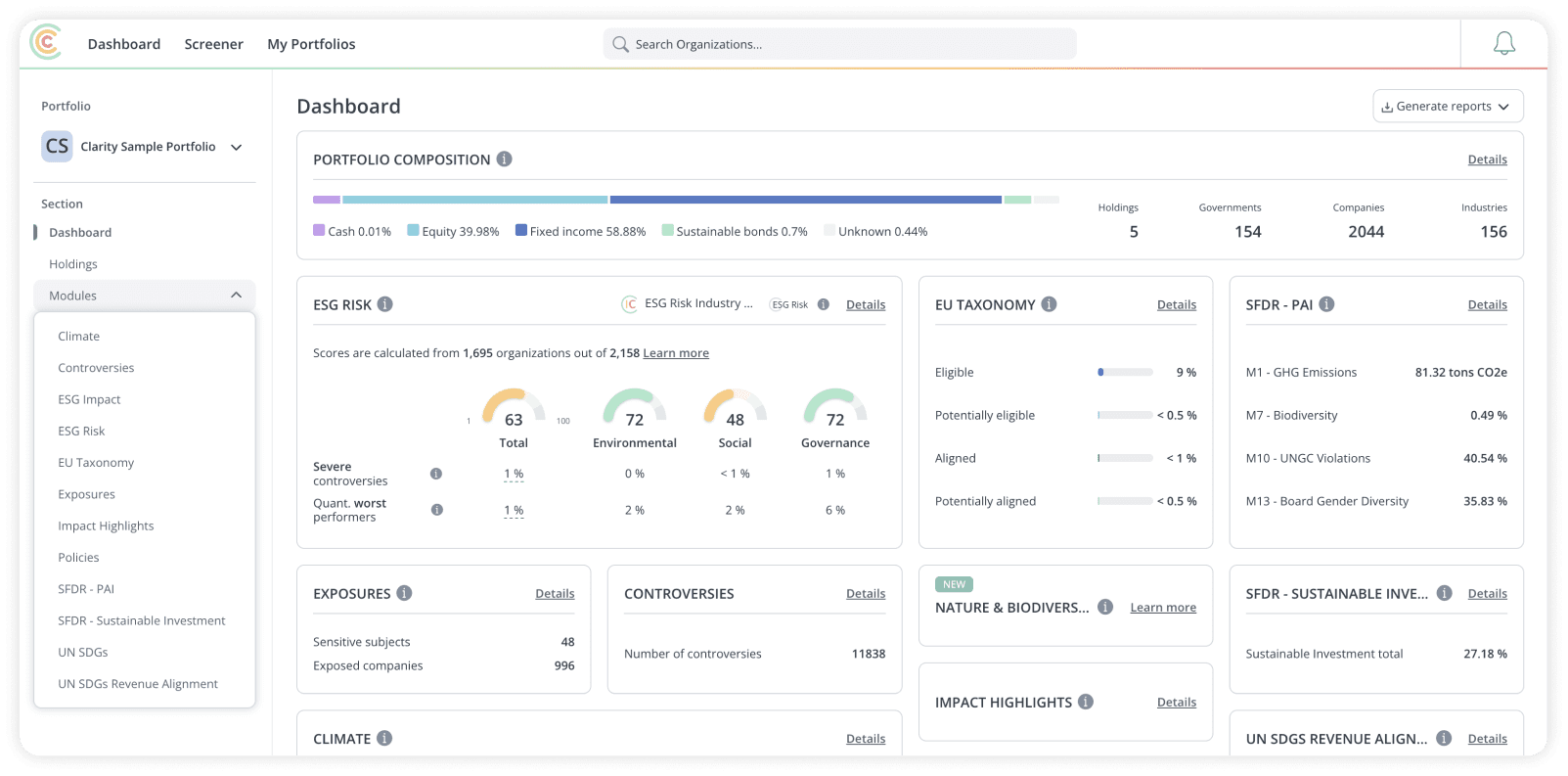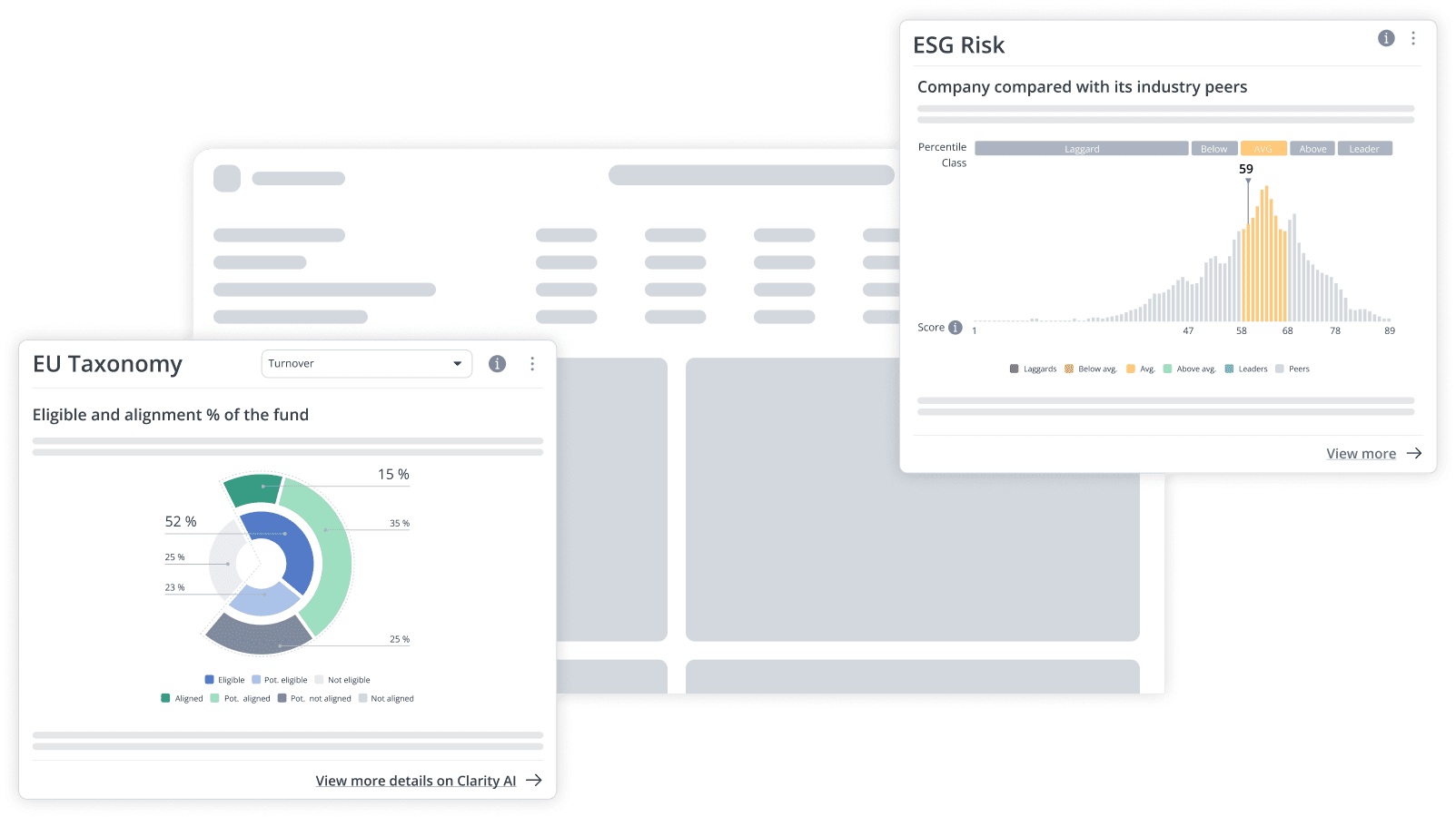Clarity AI: Many Article 9 Funds Fall Short of SFDR Requirements
Nearly 20% of Article 9 funds have more than 10% of their investments in companies that have violations of the UNGC principles or the OECD Guidelines for multinational enterprises
Clarity AI, the leading global sustainability tech platform, announced today an assessment of 15,000 funds and their Sustainable Finance Disclosure Regulation (SFDR) classifications. This analysis focuses on the 750 Article 9 funds within this universe that have sufficient information on at least 80% of their holdings. Clarity AI’s research shows that many Article 9 funds might be noncompliant with the regulation’s do no significant harm criteria.
In the SFDR, there are three main criteria to define a sustainable investment:
- It must contribute to an environmental or social objective
- It must not significantly harm other environmental or social objectives (DNSH)
- The investee company must follow good governance processes (GG)
To classify an organization as a sustainable investment it must fulfill all three of the above criteria and recent guidance on Article 9 funds suggests that the funds should be comprised of nearly 100% sustainable investments.
While a small share of investments in companies that are not sustainable is expected, Clarity AI found that nearly 20% of the Article 9 funds analyzed have more than 10% exposure to companies that have violations of the UNGC principles or the OECD Guidelines for multinational enterprises. 40% have more than 5% exposure.
“One could infer from the ESAs’ recent comments that there is an expectation that the amount of sustainable investment made by an Article 9 fund should be close to 100%. An exact figure, however, has not been codified in law,” says Patricia Pina, Head of Product Research and Innovation. “The classification of funds according to the SFDR guidelines is increasingly used in the markets as a shorthand for communicating that a product is sustainable. However our analysis shows that some of the Article 9 funds currently in the market might be falling short of complying with the sustainability related criteria.”
Clarity AI found that these Article 9 funds invest in 166 different companies that violate the UNGC or OECD principles. The violations include bribery and corruption convictions (e.g., a financial services company pleading guilty in a bribery case), anti-competitive practices (e.g., a payments company, which was fined by the United Kingdom for collusion on prepaid cards), and environmental impacts (e.g., a tourism-based company admitted to dumping fuel and food waste along with thousands of gallons of sewage into the ocean). These violations, which might be escaping the fund managers’ attention, are captured by Clarity AI’s controversy model. The model is powered by Natural Language Processing and reads more than 100,000 articles per day from more than 33,000 trusted news sources.
With evolving regulation and regulatory guidance, combined with a growing number of investment vehicles, utilizing technological solutions is the only way to accurately analyze your investments at scale. Only the right advanced technology will allow you to assess, analyze and report with accuracy and clarity.


